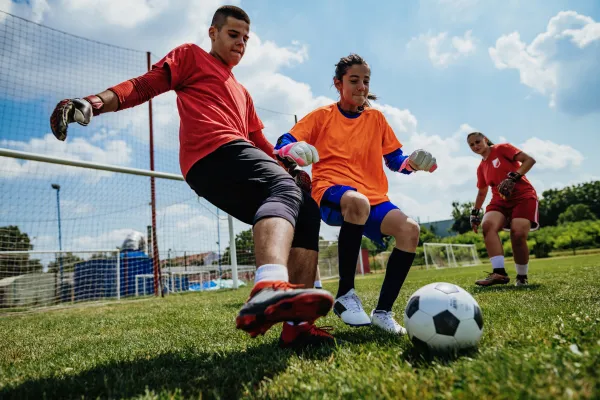
Freiberg’s Disease: What to Know About This Rare Bone Condition
Sore Foot After Sports? It Could Be More Than Just Overuse
If you're a teenager or young athlete dealing with pain in the ball of your foot — especially under the second or third toe — and it's not going away, there’s a chance you could be facing a rare condition called Freiberg’s disease.
At Peak Podiatry, we often see young, active people pushing through foot pain thinking it's just from training too hard. But with Freiberg’s, rest alone won’t solve it — and the right treatment early on makes all the difference.
What Is Freiberg’s Disease?
Freiberg’s disease (also called Freiberg’s infraction) is a bone disorder that affects one of the long bones in your forefoot — usually the second metatarsal head, just behind your second toe.
For some reason — often due to repeated stress or limited blood supply — the bone starts to collapse or flatten, leading to pain, stiffness, and swelling.
It’s most common in teenage girls and young athletes, especially those in sports that involve running, jumping, or quick stops — like track, football, soccer, and dance.
What Are the Signs?
The symptoms usually start slowly and may come and go. But over time, they often get worse. Keep an eye out for:
Pain in the ball of the foot, especially under the second or third toe
Pain that worsens with activity and improves with rest
Swelling or puffiness on top of the foot
Limited movement in the affected toe
A feeling like you’re walking on a small rock
Tenderness when pressing down on the front of your foot
If caught early, treatment is usually simple. But if ignored, the bone damage can become more severe — and harder to fix.
How a Sports Injury Podiatrist in Galway Diagnoses It
At Peak Podiatry, we specialise in sports-related foot issues, especially those that affect young, active people. Here’s how we typically approach a case like this:
1. Detailed History
We’ll ask about your sports routine, pain triggers, and how long symptoms have been going on.
2. Physical Exam
We’ll check for tenderness, range of motion, swelling, and compare both feet.
3. Imaging
An X-ray often shows the flattening or irregular shape of the metatarsal bone. In early cases, we might need an MRI to catch it before it shows up on an X-ray.
How We Treat Freiberg’s Disease
The goal is to reduce pressure on the bone so it can heal, while managing pain and helping you get back to activity safely.
Offloading the Foot
This usually means wearing a stiff-soled shoe, walker boot, or using custom orthotics that shift weight away from the sore area.
Pain Management
We may recommend anti-inflammatory strategies like icing, topical gels, or laser therapy.
Activity Adjustment
You may need to pause high-impact sports for a few weeks. But we’ll guide you on when and how to return without causing more damage.
Custom Insoles
Once the pain is under control, custom insoles can help prevent future flare-ups by correcting pressure patterns and improving foot mechanics.
Surgical Options
Surgery is rarely needed — but in more advanced cases, a foot surgeon may need to reshape or replace the damaged bone.
Getting Back to the Sport You Love
We know how frustrating it can be to sit on the sidelines — especially if you’re training for a big event or just love being active. That’s why we work closely with athletes to create a clear step-by-step return-to-play plan.
It’s not just about healing the bone — it’s about making sure your foot can handle impact again without flaring up.
Don't Let Foot Pain Slow You Down
If you or your child is experiencing forefoot pain that just won’t go away, don’t ignore it. A quick assessment with a sports injury podiatrist in Galway can catch Freiberg’s disease early — and get you back on your feet safely.
Book a visit with Peak Podiatry today. Let’s keep you moving, training, and playing without pain.
Ask Robert And His Team
Fill in the form to request a Call From Our Team
Fill in the form to request a Call From Our Team
One of our team will call you for FREE and answer any questions or concerns you may have about your Foot Pain.
One of our team will call you for FREE and answer any questions or concerns you may have about your Foot Pain.
© Copyright 2022. Peak Podiatry All rights reserved.





